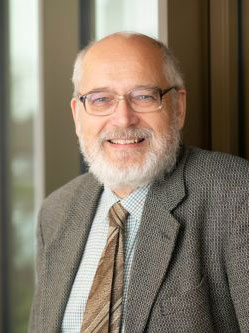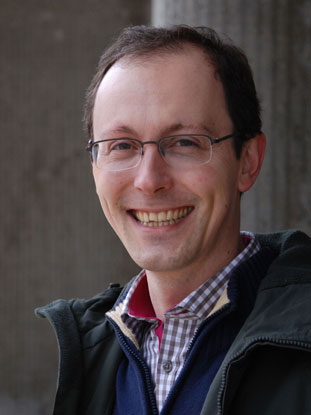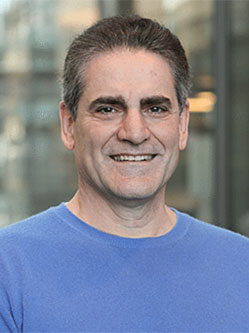2nd Annual Conference of
Random Geometric Systems
The conference will start in the afternoon of Monday 27 March and will end on Thursday 30 March after lunch. All lectures will take place at the DLR premises in Cologne-Porz. The programme is available below.
Invited speakers

Wilfrid Kendall
University of Warwick, United Kingdom
Emeritus professor Department of Statistics

Joseph Brader
University of Fribourg, Switzerland
Department of Physics

Salvatore Torquato
Princeton University, United States of America
Department of Chemistry, Department of Physics Princeton Materials Institute and Program in Applied and Computational Mathematics
Programme
Invited talks
Scale-invariant Spatial Random Networks everywhere?
Scale-invariant random spatial networks (SIRSN) are remarkable random structures providing patterns of random routes that satisfy some very plausible axioms (see Aldous and Ganesan 2013, Aldous 2014) including scale-invariance, as found empirically in online maps. It is not a priori apparent that such networks can exist at all! Nevertheless Aldous (2014) constructed a SIRSN based on a dense dyadic mesh, and WSK and Kahn showed how to build a SIRSN from a dense Poisson line process. But both these constructions involve infinitely long linear paths, and in particular do not easily admit local influences. Can one do better? I shall discuss recent work showing that SIRSN can arise under far less stringent conditions, based on line segments or even stiff fibres.
- Aldous, D J. "Scale-Invariant Random Spatial Networks." Electronic Journal of Probability 19, no. 15 (April 2014): 1-41. https://doi.org/10.1214/EJP.v19-2920
- Aldous, D J, and K Ganesan. "True Scale-Invariant Random Spatial Networks." Proceedings of the National Academy of Sciences of the United States of America 110, no. 22 (December 18, 2013): 8782-85. https://doi.org/10.1073/pnas.1304329110
- Kahn, J. "Improper Poisson Line Process as SIRSN in Any Dimension." Annals of Probability 44, no. 4 (July 2016): 2694-2725. https://doi.org/10.1214/15-AOP1032
- WSK "From Random Lines to Metric Spaces." Annals of Probability 45, no. 1 (2017): 469-517. https://doi.org/10.1214/14-AOP935
Superadiabatic Dynamical Density Functional Theory for interacting Brownian systems
When a system of interacting particles is subjected to an external field, then their average
one-body density becomes spatially varying. The primary tool for describing equilibrium
states is the density functional theory (DFT), a well-established approach in the field of
statistical mechanics. If the particles undergo Brownian dynamics, then the response of the
one-body density to a time dependent external field is commonly treated using a simple
dynamical extension of the equilibrium theory - the classical dynamical density functional
theory (DDFT). Although widely used, this approach can often provide only a qualitative
description and even fails completely in many situations of interest. However, improving the
theory has turned out to be very difficult.
In this talk I will introduce and discuss a recently developed 'superadiabatic-DDFT' which
identifies clearly and intuitively how to go beyond standard DDFT and which promises to
become an essential method in future liquid-state theories.
Hyperuniformity of Point Processes and Its Generalizations
Salvatore Torquato (online)
The study of hyperuniform states of matter is an emerging multidisciplinary field, influencing and linking developments across the physical sciences, mathematics and biology. A hyperuniform point process in d-dimensional Euclidean space is characterized by an anomalous suppression of large-scale density fluctuations relative to those in typical disordered systems, such as liquids and amorphous solids. As such, the hyperuniformity concept generalizes the traditional notion of long-range order to include not only all perfect crystals and quasicrystals, but also exotic disordered states of matter, thus providing a unified framework to quantitatively categorize such phases of matter. Disordered hyperuniform states have attracted great attention across many fields over the last two decades because they have the character of crystals on large length scales but are isotropic like liquids. I will review briefly the hyperuniformity concept, including generalizations to two-phase media (random sets), scalar fields and vector fields. Then I will give an overview of how hyperuniformity is linked to the Epstein zeta function of number theory, sphere packing problems, eigenvalues of random matrices, nontrivial zeros of the Riemann zeta function, spatial distribution of the prime numbers, free fermions, Laughlin's incompressible quantum states, and photoreceptor mosaics in avian retina. Finally, I will show how to generate disordered hyperuniform two-phase media that are rigorously disordered and hyperuniform.
Schedule
Click here to download this schedule as a PDF file.
| Monday (27/03) | Tuesday (28/03) | Wednesday (29/03) | Thursday (30/03) | |
|---|---|---|---|---|
| 09:00–09:30 | Registration | |||
| 09:30–10:00 |
P17: Michael Andreas Klatt
When can we uniquely map a classical density to a time-dependent potential? |
P11: Daniel Hug, Dominik Pabst
Integral geometry in spaces of constant curvature and applications to stochastic geometry |
P21: Matthias Sperl
Minimal models for glassy dynamics and jammed packings |
|
| 10:00–10:30 | ||||
| 10:30–11:00 | Coffee break | Coffee break | Coffee break | |
| 11:00–11:30 |
Invited talk: Joseph Brader, Salomée Tschopp
Superadiabatic dynamical density functional theory for interacting Brownian systems |
Invited talk: Wilfrid Kendall
Scale-invariant spatial random networks everywhere? |
P19: Céline Kerriou, Peter Mörters
Large deviations for the edge count in scale-free geometric graphs |
|
| 11:30–12:00 |
P25: Marco Seiler
Contact processes on evolving graphs |
|||
| 12:00–12:30 | Lunch | Lunch break | Lunch break |
P07: Pia Steinmeyer
Dynamics of contact processes on simplicial complexes |
| 12:30–13:00 | Lunch | |||
| 13:00–13:30 | ||||
| 13:30–14:00 | Registration |
P10: Martin Huesmann, Francesco Mattesini
Optimal transport and balancing allocations |
P18: Christian Mönch
Inhomogeneous long range models: an overview |
|
| 14:00–14:30 | Welcome address | |||
| 14:30–15:00 |
P05: Bingxiao Liu
Random polynomials and random Kähler geometry |
P06: Jonas Jalowy, Bastian Müller
Optimal transport for stationary point processes |
P09: Alejandro Caicedo
Critical behaviour of the weight-dependent random connection model |
|
| 15:00–15:30 | ||||
| 15:30–16:00 | Coffee break | Coffee break | Coffee break | |
| 16:00–16:30 |
Invited talk: Salvatore Torquato (Online)
Hyperuniformity of point processes and its generalizations |
P23: Anna Gusakova, Christoph Thäle
Concentration and cumulants for stabilizing functionals on point processes |
P12: Karin Jacobs, Jens Uwe Neurohr
Morphometric roughness of nanostructured surfaces |
|
| 16:30–17:00 | ||||
| 17:00–17:15 | Coffee break | Coffee break | Coffee break | |
| 17:15–17:45 |
P16: Günter Last
A genuine test for hyperuniformity |
P15: Lorenzo Dello Schiavo, Eva Kopfer
Random Riemannian geometry |
P04: Alexander Drewitz, Karl Olof Hallqvist Elias, Benedikt Jahnel, Wolfgang König, Alexander Zass
The statistical mechanics of the interlacement point process |
|
| 17:45–18:15 |
Guest: Steffen Winter
Ballistic aggregation |
|||
| 18:15–open | Conference dinner at Jaumann's hotel |
Destination
Venue
The conference will take place at the DLR site in Cologne-Porz.
Accomodation
The organisers have reserved hotel rooms at Jaumann's Hotel. The conference dinner is held at Jaumann's hotel.
Participants
- Birkner, Matthias (Universität Mainz)
- Brader, Joseph (University of Fribourg)
- Caicedo, Alejandro (LMU München)
- Dello Schiavo, Lorenzo (Institute of Science and Technology Austria)
- Disertori, Margherita (Universität Bonn)
- Drewitz, Alexander (Universität Köln)
- Düsterbeck, Marilyn (Universität Köln)
- Erbar, Matthias (Universität Bielefeld)
- Ganguly, Saswati (DLR MP)
- Gracar, Peter (University of Cologne)
- Gusakova, Anna (Universität Münster)
- Hafer, Bernhard (Universität Osnabrück)
- Hallqvist Elias, Karl Olof (Universität Köln)
- Huesmann, Martin (Universität Münster)
- Hug, Daniel (Karlsruhe Institute of Technology)
- Jacobs, Karin [Online] (Saarland University)
- Jahnel, Benedikt (TU Braunschweig/ WIAS Berlin)
- Jalowy, Jonas (Universität Münster)
- Jhawar, Sanjoy Kumar (WIAS Berlin)
- de Jonge, Lianne (Universität Osnabrück)
- Kendall, Wilfrid (University of Warwik)
- Kerriou, Céline (Universität zu Köln)
- Klass, Paul (University of Cologne)
- Klatt, Michael (HHU Düsseldorf)
- Klymovskiy, Anton (Universität Würzburg)
- König, Wolfgang (WIAS Berlin)
- Kopfer, Eva (Universität Bonn)
- Kranz, Till (Uni Köln)
- Last, Günter (Karlsruhe Institute of Technology)
- Liu, Bingxiao (Universität Köln)
- Löwen, Hartmut (HHU Düsseldorf)
- Magnanini, Elena (WIAS Berlin)
- Mattesini, Francesco (WWU Münster)
- Mecke, Klaus (FAU Erlangen-Nürnberg)
- Merkl, Franz (LMU München)
- Mönch, Christian (JGU Mainz/ Universität Augsburg)
- Mörters, Peter (Uni Köln)
- Mu, Yingxin (Universität Leipzig)
- Müller, Bastian (Universität Münster)
- Neumann, Jan Philipp (LMU München)
- Neurohr, Jens Uwe (Universität Saarland)
- Pabst, Dominik (Karlsruhe Institute of Technology)
- Reitzner, Matthias (Universität Osnabrück)
- Robinson, Joshua (Universität Mainz)
- Rolles, Silke (Technische Universität München)
- Sapozhnikov, Artem (Universität Leipzig)
- Seiler, Marco (Frankfurt Institute for Advanced Studies)
- Sperl, Matthias (DLR MP)
- Steinmeyer, Pia (Technische Universität München)
- Strotmann, Anna (Universität Osnabrück)
- Thäle, Christoph (RUB)
- Torquato, Salvatore [Online] (Princeton University)
- Tschopp, Salomée (University of Fribourg)
- van Belle, Thomas (Universität Duisburg-Essen)
- Wagner, Stefan (LMU München)
- Winter, Steffen (Karlsruhe Institute of Technology)
- Zakhar, Kabluchko (Universität Münster)
- Zass, Alexander (WIAS Berlin)
Contact
If you have any questions, please do not hesitate to send us an email at contact@random-geometric-systems-cologne.de.
Local organisers
- Dr. Michael Klatt
- Dr. Till Kranz
- Prof. Dr. Matthias Sperl